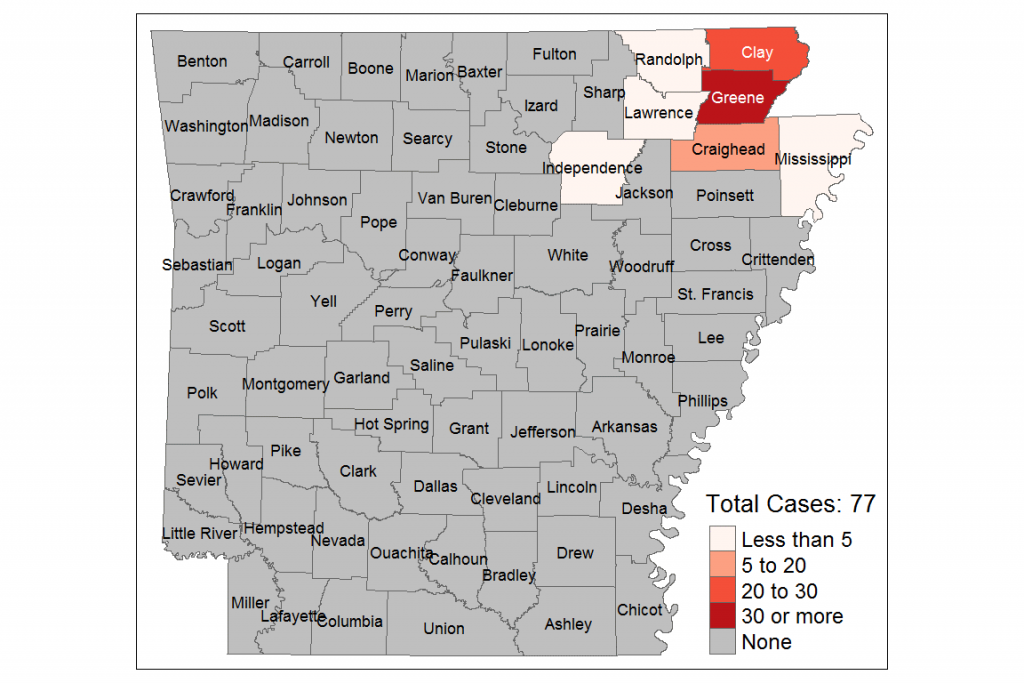In a follow-up on the hepatitis A outbreak in northeastern Arkansas, state health officials are now reported 77 cases since February, more than double the number of cases reported in mid-June.

Greene County has seen the most cases followed by Clay and Craighead counties.
The Arkansas Department of Health (ADH) says the hepatitis A vaccine (hep A) is safe and effective. Hep A is a contagious liver disease that results from infection with the hepatitis A virus, which is a different virus from the viruses that cause hep B or hep C. It is usually spread when a person ingests tiny amounts of fecal matter from contact with objects, food or drinks contaminated by the feces, or stool, of an infected person.
Risk factors for getting hep A include: close contact with someone who has hep A, being a food worker, illicit drug use, homelessness, or incarceration. Risk factors for having more severe symptoms of hep A include having other infections or chronic diseases like hep B or C, HIV/AIDS or diabetes.
Typical symptoms of hep A include fever, fatigue, loss of appetite, nausea, vomiting, abdominal pain, dark urine, clay-colored bowel movements, joint pain, or jaundice (yellowing of the skin or eyes). It can range in severity from a mild illness lasting a few weeks to a severe illness lasting several months. A person can transmit the virus to others up to two weeks before and one week after symptoms appear.
The virus can cause illness anytime from two to seven weeks after exposure. If infected, most people will develop symptoms three to four weeks after exposure. Many people, especially children, may have no symptoms. The older a person is when they get hep A, typically the more severe symptoms they have. Up to one in three adults are typically hospitalized. Almost all people who get hep A recover completely and do not have any lasting liver damage, although they may feel sick for months. Death due to hep A is rare, but is more likely in patients with other liver diseases (like hep B or C).
- Vermont reports 1st death due to Lyme carditis
- Pennsylvania officials urge parents to vaccinate children
- Crypto outbreak reported in Zumbrota, MN
- Echovirus 30: Increase in cases reported in Northern Europe
- CDC publishes Rocky Mountain Spotted Fever ‘toolkit’ for providers
- Rift Valley Fever outbreak killed 154 cows in Rwanda
- Raw pet food recalled due to Listeria

